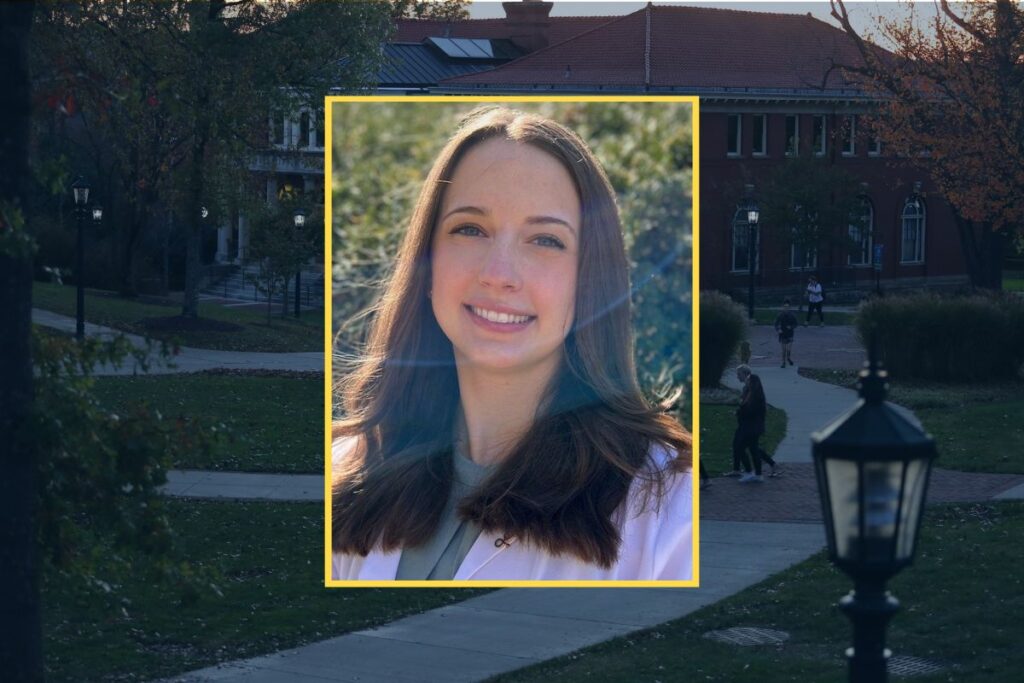
Samantha Cooper ’20 is dedicated to supporting individuals beyond their diagnoses— empowering them to lead healthier, more fulfilling lives — as a resident intern at the University of Pittsburgh Medical Center (UPMC). She says that Allegheny was instrumental in preparing her for a career in medicine.
“Allegheny’s rigorous and well-rounded environment taught me how to thrive under pressure, a skill that has been invaluable in medical school and will continue to serve me throughout my career,” says Cooper.
As a student studying biology with minors in English and Chinese studies and language, Cooper took every opportunity to be involved on campus as a student-athlete, student worker for the Office of Admissions, and research assistant.
After earning her bachelor’s degree, Cooper worked at a nursing facility for a year, caring for patients, before pursuing her doctorate at the Philadelphia College of Osteopathic Medicine (PCOM).
She says her biology degree laid the foundation for her knowledge in the field of medicine. However, it was her minors that unexpectedly had a powerful impact on her professional life.
Cooper notes that her Chinese language skills have enabled her to communicate effectively with Chinese-speaking patients, easing their anxiety about care. Meanwhile, she says that her background in English has been invaluable when communicating with others.
Many have expressed appreciation for how I explain complex medical information in ways that are easy to understand—a skill I credit to my English background, which taught me how to think creatively and frame information in multiple ways to meet each patient’s level of understanding,” remarks Cooper.
While at PCOM, Cooper was awarded the top student honor for her dedication to academic excellence, community service, and leadership. Cooper took the initiative to lead the Clinical Mentorship Program, connecting first-year students with upperclassmen or clinicians.
With a passion for community outreach, Cooper was determined to tackle the social determinants of health by collaborating with her professor to address issues related to food insecurity and patient advocacy. She also served those in the community by supporting those who were unhoused or challenged with addiction.
Now in UPMC’s internal medicine residency program, Cooper conducts admissions, physical examinations, and develops treatment plans. She remains an adaptable frontline provider of fast-paced inpatient and outpatient services.
There’s no doubt that Cooper meets her patients where they’re at, championing compassionate and holistic care that continues to make a difference in their lives.
“What I find most rewarding about my career path in medicine is the opportunity to truly help people — not just by treating their medical conditions, but by understanding and supporting them as whole individuals,” reflects Cooper. “I’ve been able to meet individuals where they are—physically, mentally, and financially. This ability to connect, serve, and make a tangible difference in people’s lives is what continues to inspire and sustain me in medicine.”


